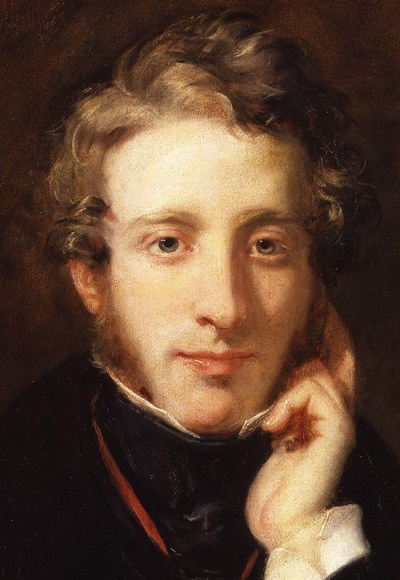Get Today in Masonic History into your Inbox. Sign up today for one of our email lists!
Need an article for your Trestleboard/Newsletter see our Use Policy
Edward George Earle Lytton Bulwer-Lytton, 1st Baron Lytton Passes Away

Today in Masonic History Edward George Earle Lytton Bulwer-Lytton, 1st Baron Lytton passes away in 1873.
Edward George Earle Lytton Bulwer-Lytton, 1st Baron Lytton was an English writer.
Bulwer-Lytton was born on May 25th, 1803 in London, England. At the age of four his father passed away. His mother sent him to various boarding schools none of which suited him. He was described as a delicate and neurotic child. At the age of 15 he was encouraged to publish his early works Ishmael and Other Poems. Two years later the book was published. He attended Trinity College, Cambridge in 1822 and graduated the following year with a bachelor of arts. After graduating he purchased a commission in the Army and quickly sold it never serving.
In 1827, Bulwer-Lytton married Rosina Doyle Wheeler against his mothers wishes. They had two children a daughter and a son (Edward) Robert Lytton Bulwer-Lytton, 1st Earl of Lytton who is often confused with his father. Some literary works about Bulwer-Lytton senior contain facts actually about his son. In one publication a photo appears stating it is Bulwer-Lytton senior when it is actually his son. The marriage between Rosina and Bulwer-Lytton did not end well. The couple had a legal separation in 1836 and Rosina spent the rest of her life attacking her husband in various ways. This was due to his infidelity and as Rosina puts it, his hypocrisy. In 1839 she published the book Cheveley, or the Man of Honour, a near libelous fictional story satirizing Bulwer-Lytton.
In 1830, Bulwer-Lytton published Paul Clifford. The book, although not very popular today, starts with the well known phrase "It was a dark and stormy night..." The line has been used in various adaptations in horror and mystery books. Probably most famously it is the line Snoopy uses in the Peanuts comic strip when he starts any of his novels.
In 1832, Bulwer-Lytton entered politics and spent the majority of the 1830's serving in Parliament. At times he was offered various positions in Government and refused them fearing it'd take away from his writing. In 1858, when he tried to return to politics, Rosina began a public attack against his character. Eventually it led to Bulwer-Lytton having her committed to an mental asylum. There was a massive public outcry at this and she was released a few weeks later.
Bulwer-Lytton was known for wit and many of his writings, both plays and books contain notable lines still quoted to this day. His play Richelieu; Or the Conspiracy contains the line "the pen is mightier than the sword." The phrase "great unwashed masses" comes from one of his books, although there is some disagreement about which book. Some say it is novel The Last Days of Pompeii others say it comes from Paul Clifford. Finally he gave the world the phrase "in pursuit of the almighty dollar" from his book The Coming Race.
Throughout his life, Bulwer-Lytton has been repeatedly associated with various occult organizations, none of which he claimed a connection. The English Rosicrucian society named him their 'Grand Patron.' In reply to this, Bulwer-Lytton wrote to the society he did not seek the title and insisted it be removed. He is also credited with being the inspiration of the Hollow Earth Theory. This comes from his novel Vril: The Power of the Coming Race. The book was an early Science Fiction novel about a race of people who were waiting to return to the surface of the Earth to reclaim it. Vril also became closely associated with the esoteric ideas of neo-Nazism after World War II.
Bulwer-Lytton passed away on January 18th, 1873. His estranged wife outlived him by several years. In 1880 she published A Brighted Light, a memoir in which she further attached Bulwer-Lytton.
Bulwer-Lytton's masonic affiliation is unclear. He did write a poem The Mystic Art which starts "The world may rail at Masonry." As already stated there has been confusion regarding Bulwer-Lytton and his son, as well as a William Lytton Earle Bulwer who was a mason and was Provincial Grand Master of Turkey and lived at the same time as Bulwer-Lytton.
This article provided by Brother Eric C. Steele.
| S | M | T | W | T | F | S |
| 1 | 2 | 3 | 4 | |||
| 5 | 6 | 7 | 8 | 9 | 10 | 11 |
| 12 | 13 | 14 | 15 | 16 | 17 | 18 |
| 19 | 20 | 21 | 22 | 23 | 24 | 25 |
| 26 | 27 | 28 | 29 | 30 | 31 | |
Other Events Today
Edward George Earle Lytton Bulwer-Lytton, 1st Baron Lytton Passes Away
Alexander Lindsay, 6th Earl of Balcarres is Born
Euclid
Stratton Duluth Brooks Passes Away

